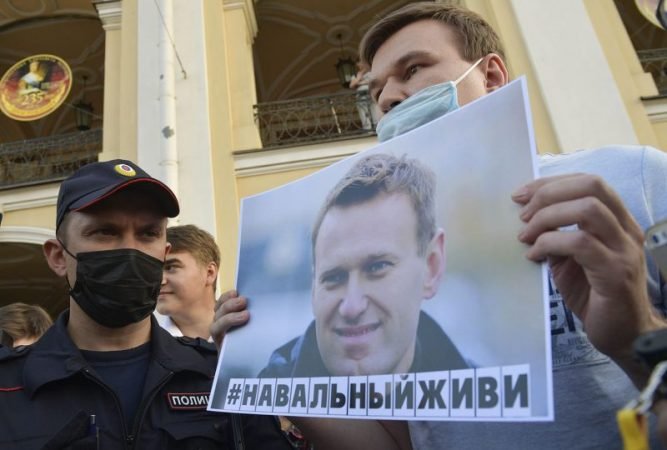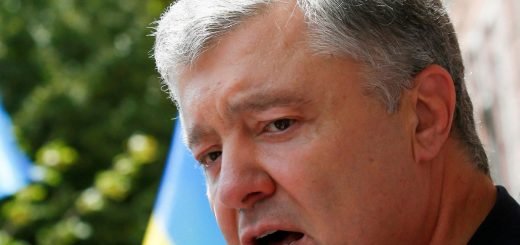Old habits die hard: Putin’s fiercest critic “Poisoned”?

On 20th August 2020, Russian opposition leader, Alexei Navalny was rushed to the hospital in Omsk, making an emergency landing on the way from Tomsk to Moscow. He started feeling unwell and was admitted urgently to a local Siberian Hospital in Omsk.
“We suspect that Alexei was poisoned by something mixed into [his] tea. It was the only thing he drank since morning. Doctors are saying that the toxic agent absorbed faster through the hot liquid,” Kira Yarmysh, the press secretary at the Anti-Corruption Foundation, founded in 2011 by Navalny, tweeted. The doctors had been tight-lipped about his diagnosis, while he was admitted there, but they did give the green light for his condition being stable enough to be transported to Germany for further treatment. Navalny’s supporters believe that the hospital was stalling to remove all the poison out of the body.
Cinemas for Peace, the German NGO funded the flight of Navalny to Berlin where he now lies in the Charite Hospital, transported from the airport by the German Military in an intensive care transporter. The travel for Navalny did not prove detrimental to his health. Now he is in coma and is breathing through a ventilator. The Charite hospital ran a thorough diagnosis of Navalny and released a statement saying, “Clinical evidence suggests an intoxication through a substance belonging to the group of cholinesterase inhibitors”. Cholinesterase inhibitors are drugs that can increase communication between nerve cells in the brain. They are sometimes used to temporarily improve or stabilise the symptoms of people with dementia. It means that small traces of poison was indeed found in Navalny’s body. The condition is said to be serious but not life-threatening. He is being treated with the antidote, atropine. The hospital is still unsure of the substance administered as well as the clinical outcomes of the poison, stating possible effects on the nervous system. The Siberian Hospital though did not find any traces of poison in its diagnosis and diagnosed him instead with a metabolic disease brought upon by low blood sugar level. Though the credibility of the Siberian Hospital is dubious they deny the involvement of authorities in their diagnosis.

Alexei Navalny was one of the “fiercest” critics of President Vladimir Putin. He is a lawyer and anti-corruption campaigner who has made many enemies by uncovering many Russian elites’ lavish lifestyles and also speaking up against the President. He had been arrested by the authorities thrice, for calling out President Putin’s United Russia party for vote-rigging in the parliamentary elections in 2011, on embezzlement charges in 2013 and finally in 2019 for organisation unauthorised protests. Navalny has also claimed to being poisoned before while in jail, as he was admitted with symptoms of “a swollen face, eye problems and rashes on his body”. He doctor diagnosed him with “contact dermatitis”, but he said that he has never had any acute allergic reactions before and his own doctor suggested that he might’ve been exposed to “some toxic agent.” In 2017, Navalny permanently damaged his eye in a chemical burn when he was attacked by a green anti-septic dye. It was clear that Navalny had become the face of opposition in Russia and stood for Presidential elections in 2018 but he was declared unfit because of his embezzlement charges.
The allegations and assurance of Kira Yarmysh of poisoning even before the diagnosis, make sense once we are acquainted with Russia’s History of poisoning any form of threat to the government. Journalist and opposition activist Vladimir Kara-Murza has accused of being poisoned twice by the Russian Security Services. In 2018, Kremlin critic, Pyotr Verzilov accused the Russian intelligence services of poisoning him, when he fell ill after a court hearing losing his sight and ability to speak. Former Russian double agent Sergei Skripal and his daughter were poisoned with the Novichok nerve agent in the British city of Salisbury. The UK believes agents from Russia’s GRU military intelligence service were behind the attack, but the Kremlin has always denied involvement. A former Russian Spy also died under suspicious circumstances in Britain where his tea was laced with the radioactive isotope polonium-210. He was also a critic of Vladimir Putin. Anna Politkovskaya, an investigative journalist, who was a critic of Russia’s war on separatists in Chechnya, faced circumstances eerily similar to Navalny and fainted after drinking tea. When she survived, she was shot dead two years later in her Moscow apartment.
The investigation by the Investigative Agency of Russia was being requested by Vyacheslav Grimaldi, a lawyer with Navalny’s firm, who had been sure that he was poisoned due to his political activities. The EU commission spokesperson Nabila Massrali said the EU expects “a swift, independent and transparent investigation, and if [poisoning] is confirmed those responsible must be held to account”. Lithuania’s Foreign Minister Linas Linkevicius, German Chancellor Angela Merkel and the French President Emmanuel Macron have expressed their concern for Navalny and have asked for transparency and full investigation regarding the poisoning allegations. Though the traces of possible poisoning has been found by the Charite Hospital, the treatment will allow him to live but will inhibit his capabilities as a challenging opposition to Vladimir Putin in the coming future.


















